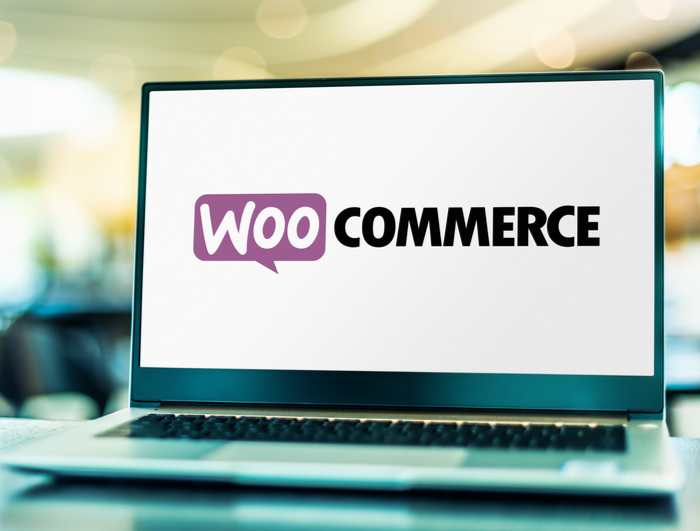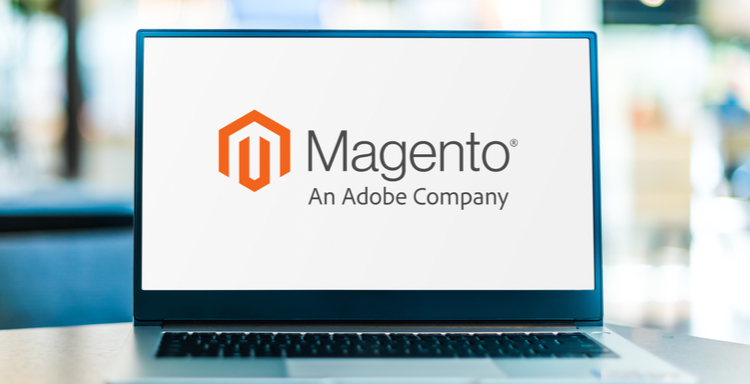Which CMS Should I Use For My New Business Website?
Are you thinking about launching an online business? Your website forms the backbone of your online offering. A website gives you a platform to capture traffic and convert leads through your landing pages and lead magnets.
To launch your website, you’ll need to settle on the right Content Management System (CMS) for your site-specific functionality. Different styles of websites, such as blogs and e-commerce stores, require a completely different CMS from each other for optimal performance.
This post unpacks everything you need to know about choosing the right content management system for your new online business. We’ll walk you through the popular options to help you make an informed decision on the best CMS for your site.

WordPress
When you start your investigation into the best CMS platform for your business, you’re going to run onto WordPress. WordPress is the world’s most popular content management system, with more than 64-million websites choosing the CMS to power operations.
WordPress got its start as a blogging platform back in 2003. The CMS gathered somewhat of a cult following of developers, providing you with one of the largest development communities around any CMS. As a result, you have many design options for themes and templates and a host of functional plugins for the WordPress CMS.
So, why is WordPress the premier choice for the majority of website owners? The reason for its popularity comes from the user-friendly interface and dashboard on the CMS. WordPress offers you a highly customizable CMS that suits from the smallest to the largest websites.
Of the top 10,000 websites online, the WordPress CMS powers 3,800 of these sites, making it suitable for large or small company websites. The range of customizations is outstanding, and since it’s such a well-known CMS, there are plenty of developers and designers that can help you build out a custom site to meet your business requirements.
Pros
- It’s the world’s most popular CMS.
- It comes with a wide range of plugins and themes.
- Excellent developer support.
- Suitable for small or large websites.
Cons
- It requires frequent updates.
- It can be expensive with custom themes and plugins.
- It requires coding experience for changes to the site.
Which Businesses Suit WordPress CMS?
The WordPress CMS suits a wide range of online websites. WordPress is a great choice for its user-friendly management and an excellent range of plugins and free themes to suit small to large businesses.

WooCommerce
WooCommerce isn’t actually a CMS; it’s a plugin for the WordPress content management system. However, this plugin offers so many options and functions for your e-commerce site; it’s practically a standalone CMS by itself.
By implementing the WooCommerce plugin, you can turn your website into a fully functional ecommerce store, and did we mention that it’s a free plugin? It’s easy to set up the WooCommerce plugin, but you might need the experience of a developer to help you set it up and master all of the functions of the plugin for your website.
Still, if you’re setting up an e-commerce company, you can’t get a better deal than WordPress and the WooCommerce plugin; it’s a great combo that gives you everything you need to sell online.
The WooCommerce plugin is easy to navigate, with a user-friendly interface that’s easy to configure and manage. Woo Commerce uses the same backend as the WordPress CMS, making it a seamless experience for any user to operate.
We like the customizable options with WooCommerce, allowing you to set up a platform for selling physical or virtual goods and services through your online store. WooCommerce also comes with a host of useful functions for the e-commerce marketer.
You have options for calculating shipping costs based on location, as well as parcel weight. The WooCommerce plugin also allows for up-selling strategies and setting up automated email campaigns to your list. We also like that it’s easy to optimize your WooCommerce pages and store to enhance your SEO strategy.
Pros
- Free for WordPress users.
- It’s a fantastic platform for any e-commerce application.
- Highly customizable.
- It has the same backend as the WordPress CMS for user-friendly navigation.
- It comes with a range of features for optimizing SEO and other selling strategies.
Cons
- It may be complicated for new users to master.
- It requires some coding work for optimization and setup.
- Only suitable for e-commerce stores.
Which Businesses Suit WooCommerce CMS?
WooCommerce is the ideal e-commerce CMS addition to WordPress. This handy plugin turns any WordPress site into a fully functional e-commerce store. It’s suitable for large or small e-commerce sites, with a customizable interface to suit your application.

Joomla
Joomla is another common CMS and possibly the second-most-popular after WordPress. While it’s not as user-friendly as a WP CMS, you get added flexibility with this platform.
If you’re focusing more on images and video media for your site over text, Joomla might be the better option for your site. The Joomla CMS also provides users with more options for advanced management of your site.
Joomla CMS also features multilingual support without the need for additional plugins. If you’re an international business, the different language options make Joomla a top choice for your CMS.
The only issue we have with Joomla is its lack of plugins and themes. There are also few extensions for Joomla sites, and you’ll need to manually add additional features to your site, requiring coding expertise.
Pros
- It’s a good choice for graphic designers that want an image or video-rich site.
- The second-most-popular CMS to WordPress.
- Multilingual support.
Cons
- You get limited options for plugins and themes.
- It requires coding expertise for configuration and setup.
Which Businesses Suit Joomla CMS?
If you’re thinking about opening a membership site, or a portfolio site for your graphic design agency, Joomla is a great option. It might have a more sophisticated interface than WordPress, but it’s ideal for larger companies that want an image or video-rich website.

Drupal
Drupal is another option for your CMS, and it has a similar interface, function, and features as the Joomla CMS. Drupal is a great choice for building custom sites focusing on advanced user management and multilingual options.
Drupal has several unique features setting it apart from other CMS competitors. Drupal’s advanced
taxonomy systems categorize web content and products. As a result, it’s a good option for larger e-commerce sites. The Drupal CMS also features advanced security settings and options, making it extra-secure for any e-commerce entrepreneur.
However, the Drupal CMS interface and dashboard are nowhere nearly as user-friendly as the WordPress backend. New users might find themselves unable to navigate their way around the platform without professional help.
Pros
- It’s a good alternative for large e-commerce sites.
- It comes with more security features than Joomla or WordPress.
- It has advanced features for the optimal categorization of content and products.
Cons
- Not user-friendly.
- It requires professional assistance for first-time users.
- Which Businesses Suit Drupal CMS?
Which Businesses Suit Drupal CMS?
If you’re thinking about opening a large e-commerce store, Drupal is a great choice. However, it’s somewhat challenging to master the -platform, especially if you have no previous experience working with a CMS.

Magento
Magento is a great option for users in need of a comprehensive e-commerce solution. Magento is the preferred CMS option for top Fortune 500 companies like the Ford Motor Corporation, Nike, and other premium brands.
Magento comes with some e-commerce applications and features that simply aren’t available in other e-commerce CMS options.
Users get features like purchase history, product saving, and advanced payment support options. You also get functionality for managing several e-commerce stores through one dashboard, which is handy for entrepreneurs operating multiple online stores.
Pros
- It’s the ideal choice for large e-commerce sites.
- It’s the favorite choice of Fortune 500 companies.
- It comes with advanced e-commerce functions and features.
- Manage several online stores through a single dashboard.
Cons
- Not suitable for blogs or other sites.
- It requires coding experience for configuration and setup.
- Somewhat expensive.
- Which Businesses Suit Magento CMS?
Which Businesses Suit Magento CMS?
The Magento CMS is a good choice for online retailers running large stores. If you intend on having lots of web pages on your site, Magento is a great option and the better choice over WooCommerce.
Wrapping Up: Choose the Right CMS for Your Business Strategy
Each of the CMS options in this review offers you a unique experience for your online business. Choose the right content management system for your blog, e-commerce store, or information site, and get to work!
















